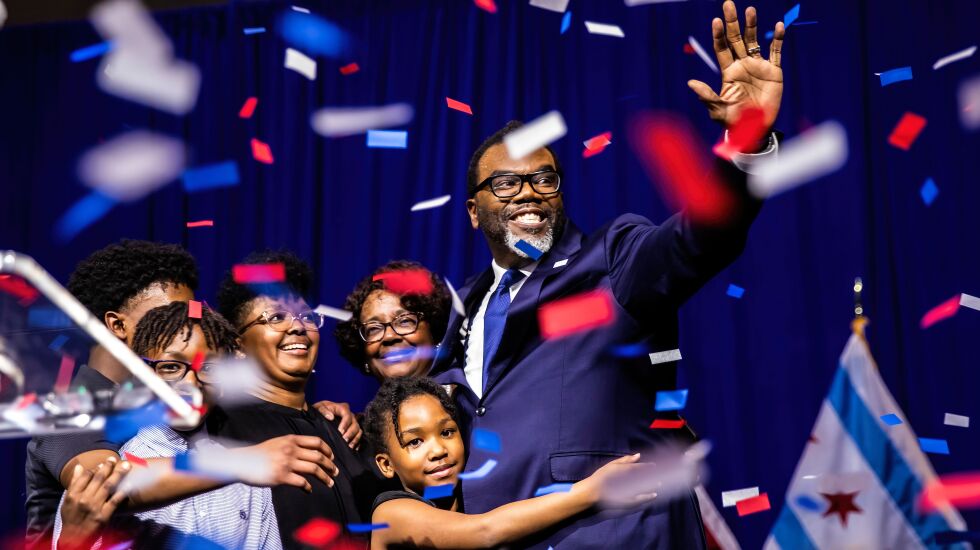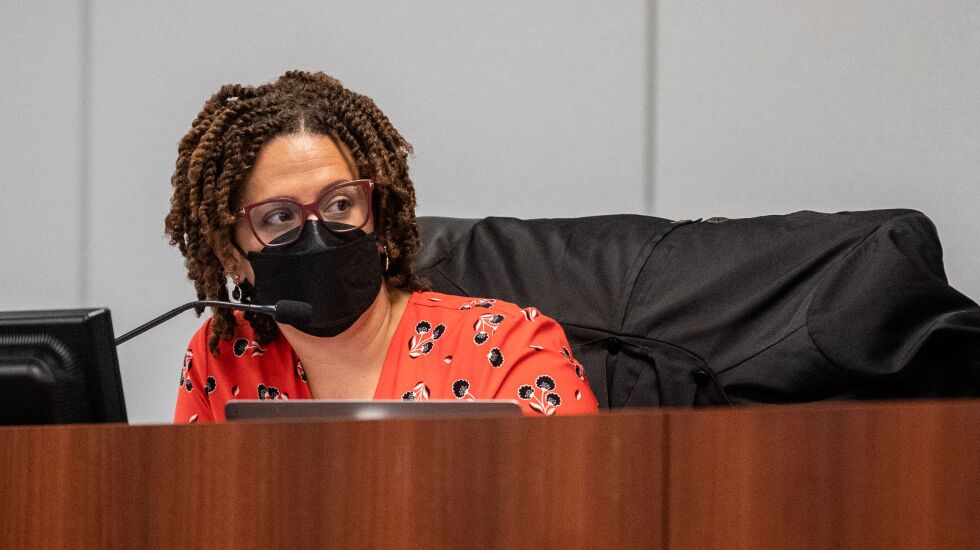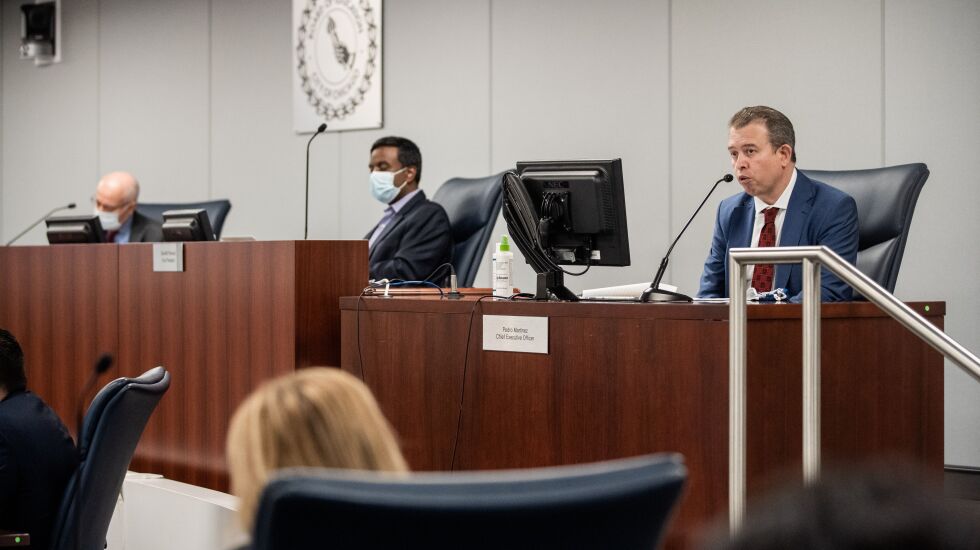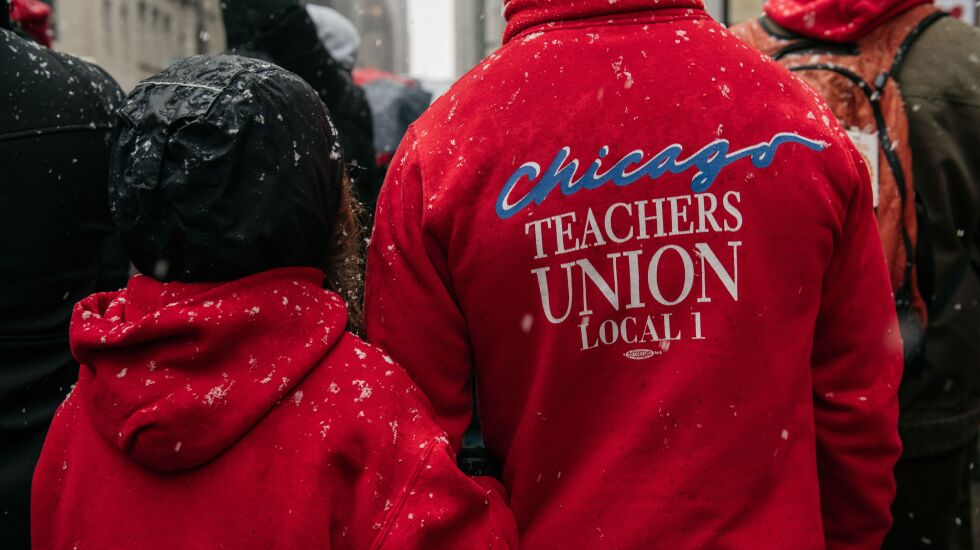
Former public school teacher Brandon Johnson will soon become the city’s 57th mayor after his election Tuesday, and some of his first official decisions will likely have to do with education — the issue closest to his heart and his work over the past decade.
From new leadership to a budget dilemma and a new Chicago Teachers Union contract, here’s a look at his to-do list for Chicago Public Schools.
CPS CEO Pedro Martinez
One of the biggest and most immediate questions is whether Johnson will keep Chicago Public Schools CEO Pedro Martinez.
Johnson hasn’t committed one way or another.
Meanwhile, the Chicago Teachers Union has developed a professional working relationship with Martinez and praised his willingness to partner with the union — a departure from years of strife. But that doesn’t necessarily mean he’ll be Johnson’s preferred schools chief.

Martinez’s first 19 months on the job has aligned with Johnson’s vision for CPS. Martinez has attempted to centralize some staffing to ensure every school — no matter its enrollment — has art teachers, reasonable class sizes, limited split-grade classes and other vital resources. Johnson has vowed to take that work further by securing more funding for the district, which is also a goal of Martinez’s.
Johnson would have plenty of names in mind if he chose a new CEO having been entrenched in the city’s education world for a decade and a half.
It would cost taxpayers a pretty penny to replace Martinez, who has a little over three years remaining on a five-year contract that expires in June 2026. If Martinez is terminated without cause, his contract calls for 20 weeks’ severance pay totaling $134,692 at his current $350,200 salary. That money would be paid in regular paychecks over those five months.
There would be some time before a transition to a new CEO. The Board of Education in December amended Martinez’s contract to add a 180-day notice for a without-cause termination.
During that time, Martinez would have to continue working and overlap with his replacement.
Board of Ed members
Johnson is more likely to have a quicker imprint on the seven-member Board of Education, where board President Miguel del Valle’s term is set to expire this spring. Del Valle acknowledged at last month’s school board meeting that “I’m not gonna be here much longer.”
Beyond the president, it’s questionable whether Johnson would retain any of Lightfoot’s appointees. Elizabeth Todd-Breland, a history professor at the University of Illinois Chicago, is the most progressive school board member and might have the best chance of staying on. Todd-Breland endorsed Johnson in the runoff in her capacity as a professor, not as a board member.

Despite last year’s legislation that created an elected Chicago school board, Johnson will retain control of the Board of Education throughout his term.
When the board expands from seven members to 21 next year, Johnson will appoint 11 members — including the board president, who’ll need to be confirmed by the City Council. Those seats will turn into elected ones in 2027.
Budget
One of Johnson’s first true education tests as mayor will be his handling of the district’s new budget.
CPS typically unveils its budget in the spring — as early as March in recent years — and takes public and principal concerns into account before the Board of Education votes on a final iteration at its June meeting. The district’s fiscal year starts July 1.
If Johnson wants to make an immediate imprint on schools’ day-to-day functions, this is his chance. But time is limited between his May 15 inauguration and the school board’s budget vote at its June 28 meeting.
The budget process is one of the district’s most important and complicated functions, and the budget team has been working for months on next year’s version.
It’s likely impossible for Johnson — and his new schools team, if he brings one in immediately — to make the fundamental structural changes he wants in that time. If that’s the case, the city’s new mayor who campaigned in large part on his education experience may have to wait a year to fully make his presence felt.

The district still hasn’t released details about next year’s budget, but Martinez did vow to continue some of his initiatives from last year, like arts teachers, smaller class sizes and limited split-grade classrooms for all schools. To make that possible, though, Martinez’s administration made cuts from some schools to give to others — and protests ensued because even though the schools that faced cuts had more resources than others, they still weren’t fully funded.
Johnson’s dilemma will be how to own a budget that might again face similar criticism — unless the CTU and allied community groups hold off protests this time around.
Near South High School
Johnson did not commit during his campaign to building a $150 million high school on the Near South Side. Lightfoot has pushed it through despite protests even from the project’s most ardent supporters.
Johnson is unlikely to support the new school, particularly not on public housing land as planned. Black families on the South Side have raised concerns that a new building would attract students away from nearby historically Black schools and subsequently drain those schools of resources.
Funding/deficit
Johnson will likely turn to Springfield pretty quickly for more funding for CPS. Johnson will have immediate allies in the 10 state senators and 12 state representatives who endorsed him for mayor.
But it’ll be a tall task that many before him have failed to accomplish. If he falls short, he’ll need to find another way to prevent a $600 million deficit in the 2025-26 school year.
CTU contract
The CTU contract expires in June 2024 — which might sound like quite a ways away until you realize negotiations typically start months in advance.
Johnson will have a little longer than Lightfoot to ease into those negotiations; talks had started when she was inaugurated in May 2019, and the contract expired in June 2019.
It’ll be a relatively easy task for Johnson as he swaps sides of the table. It would take a shocking turn of events for there to be labor strife between the CTU and one of its soon-to-be-former leaders.

He’ll continue to face accusations that he’s beholden to the union — and he’ll have to find a way to put that criticism behind him to become a “mayor for all Chicagoans,” as he puts it. Johnson’s word will be put to the test as taxpayers closely watch his fiscal responsibility.
The element that could change is the structure of CTU negotiations. The union has in the past called for open bargaining that the public can observe. Some community groups might be brought to the table to turn contract negotiations into more of a collaborative project.
School board elections
At the same time that CTU negotiations enter primetime about a year from now, the city’s first school board elections will be gearing up.
Chicago will vote for 10 members of a partially elected 11-member board in November 2024, along with the nation’s general elections. That’ll be the first taste of what could turn into big-money and big-stakes races to control CPS.
If other major urban districts like Los Angeles are any indication, charter interests will battle the teachers union in expensive races.







